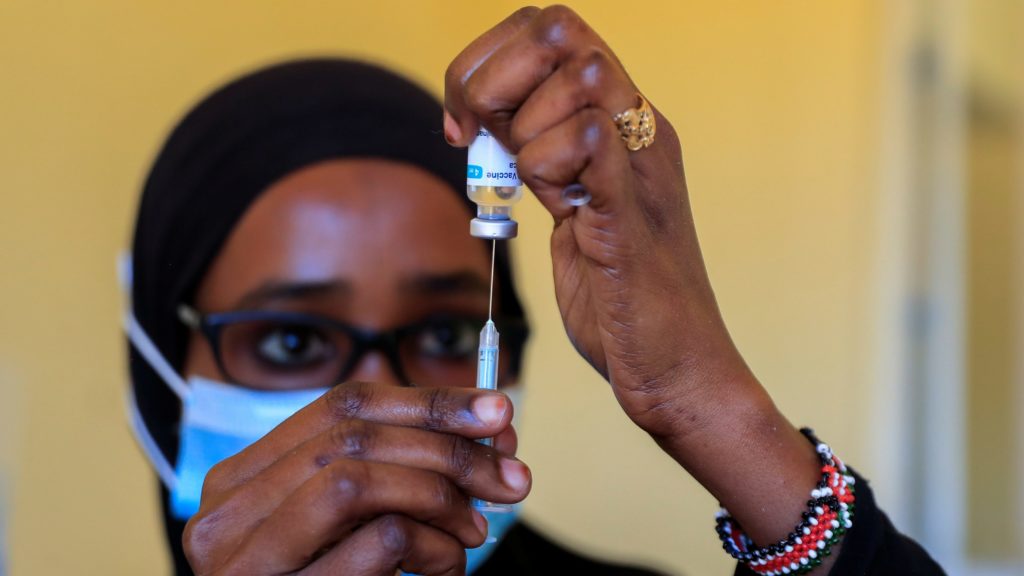Kenya plans to deny unvaccinated people access to government services
Health minister says from Dec. 21, people seeking in-person government services should be fully vaccinated. …


Kenya is preparing to restrict people who haven’t been vaccinated against covid-19 from receiving government services, in a move that has ignited debate on the government directive versus the reality of vaccine shortage in the country.
In a press briefing on Nov. 21, health minister Mutahi Kagwe said that from Dec. 21, people seeking in-person government services should be fully vaccinated and should show proof of vaccination. The services include tax, immigration, port, and hospital services, he added.
The development is aimed at “the very critical need of ensuring the country remains on track in the containment of the disease,” Kagwe said.
This move has sparked debate about the rationale behind compelling Kenyans to get vaccinated by a certain date despite insufficient supply of vaccines, and the right to receive government services.
Kenya doesn’t have enough vaccines
While performing much better than several other African countries, Kenya has only vaccinated 4.17% of its population. Like most other countries in the region, it is experiencing a shortage of vaccines due to reasons including the hoarding of vaccines by richer countries, and under-delivery by Covax, the global vaccine distribution program tasked with reducing inequity in distribution of covid-19 vaccines.
Kenya plans to vaccinate its entire adult population by December 2022. But it failed to meet the global goal of countries vaccinating 10% of their populations against covid-19 by the end of September, and is expected to fail to meet the end-year target of countries fully vaccinating 40% of their populations against disease.
Still, the government has itself failed in properly disseminating information on vaccine availability, making Kenyans resort to using social media to fill this information gap and boost vaccination numbers.
Mutahi Kagwe’s statement on vaccination has created a debate
Kenyans have criticized minister Kagwe’s announcement on social media.
Kenya has used a directive to try to get people vaccinated before. In August, the government said it would require government workers to be vaccinated or face disciplinary action, but President Uhuru Kenyatta later reversed the instruction.
Elsewhere, Indonesia, Micronesia, and Turkmenistan have made covid-19 vaccination mandatory for all adults, while other countries such as Egypt, Canada, Denmark, Italy, Saudi Arabia, and Turkey have made it mandatory for groups such as government employees and public sector workers. On the other hand, Austria recently ordered a nationwide lockdown for unvaccinated residents.
These measures are generally unpopular, with concerns that they are deepening the divide between vaccinated and unvaccinated people by restricting freedoms. But they are likely to increase globally as governments seek to get more people vaccinated to curb the pandemic.
Kenya has recorded 254,629 covid-19 cases and 5,328 deaths from the disease.
Sign up to the Quartz Africa Weekly Brief here for news and analysis on African business, tech, and innovation in your inbox.